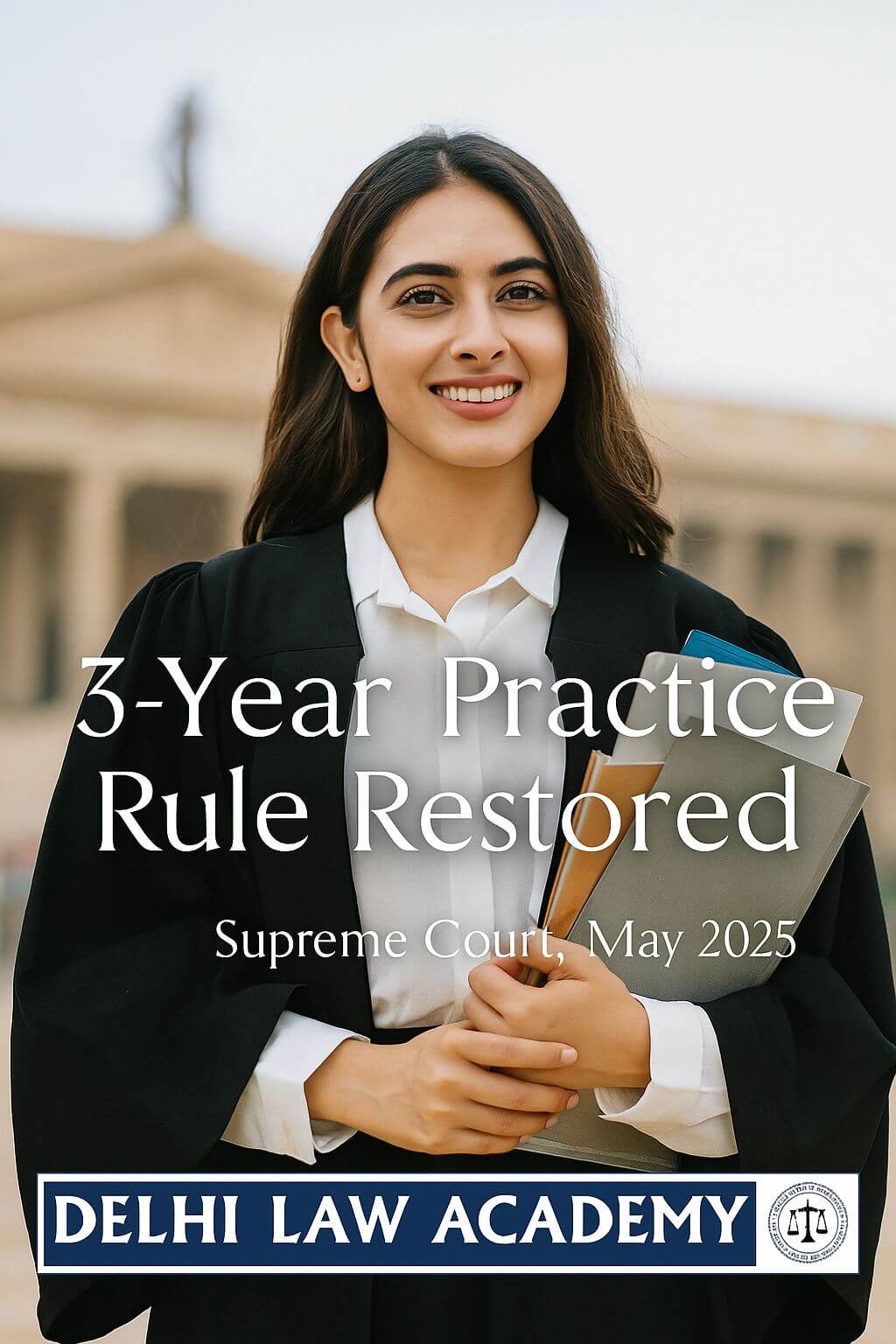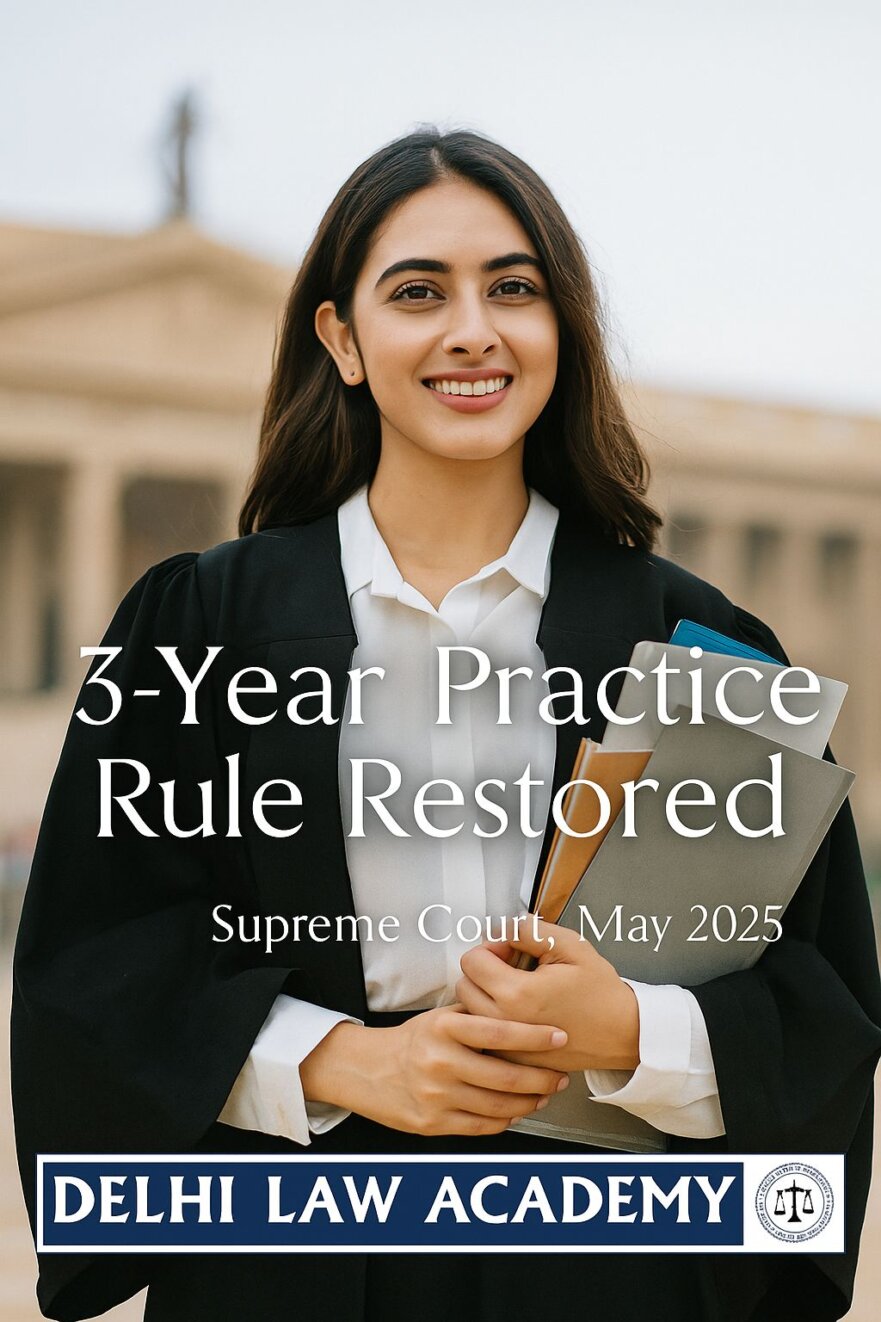
Supreme Court Restores 3-Year Practice Requirement for Judicial Services Aspirants (May 2025 Judgment)
A Must-Read for RJS, DJS & All Judicial Services Exam Aspirants
In a major development impacting all judicial service aspirants across India, the Supreme Court of India has restored the requirement of a minimum of three years of legal practice for appearing in the Civil Judge (Junior Division) examinations.
This landmark judgment, delivered in May 2025 in the case of All India Judges Association v. Union of India, directly affects candidates preparing for judicial exams like RJS (Rajasthan Judicial Services), DJS (Delhi Judicial Services), and other state-level judiciary exams.
Why Is This Judgment Important?
For over two decades, fresh law graduates were eligible to appear for judicial service exams without prior legal practice. That changed in May 2025, when a three-judge bench headed by CJI B. R. Gavai reinstated the mandatory three-year practice experience, emphasizing the need for courtroom exposure and professional maturity.
Key Issues Decided by the Supreme Court
- Is prior legal practice mandatory again for Civil Judge exams?
Yes. The Court has restored the three-year practice requirement that was removed in the 2002 Third AIJA case. - From when will the practice experience be calculated?
From the date of provisional enrollment/registration with the State Bar Council, not from the date of passing the AIBE (All India Bar Examination).
Highlights of the May 2025 Supreme Court Judgment
Case Name: All India Judges Association v. Union of India
Bench: CJI B R Gavai, Justice Augustine George Masih, Justice K. Vinod Chandran
Date of Judgment: 20 May 2025
Key Directions Issued by the Court:
- Candidates must have practiced law for at least three years before being eligible to appear for Civil Judge (Junior Division) exams.
- The experience will be calculated from the date of provisional enrollment with the State Bar Council.
- Candidates must produce a certificate of practice issued by:
- A Principal Judicial Officer of the court where they practiced, or
- A senior advocate (10+ years’ standing) endorsed by the Principal Judicial Officer or a designated officer of the High Court/Supreme Court.

